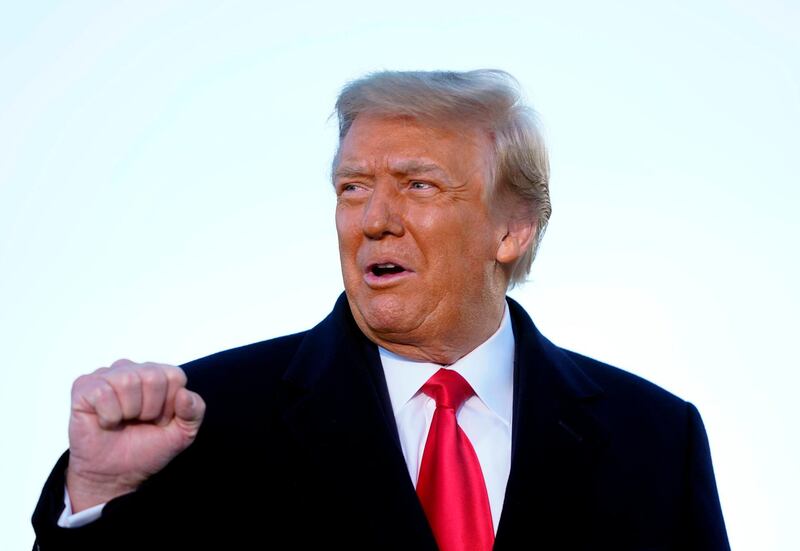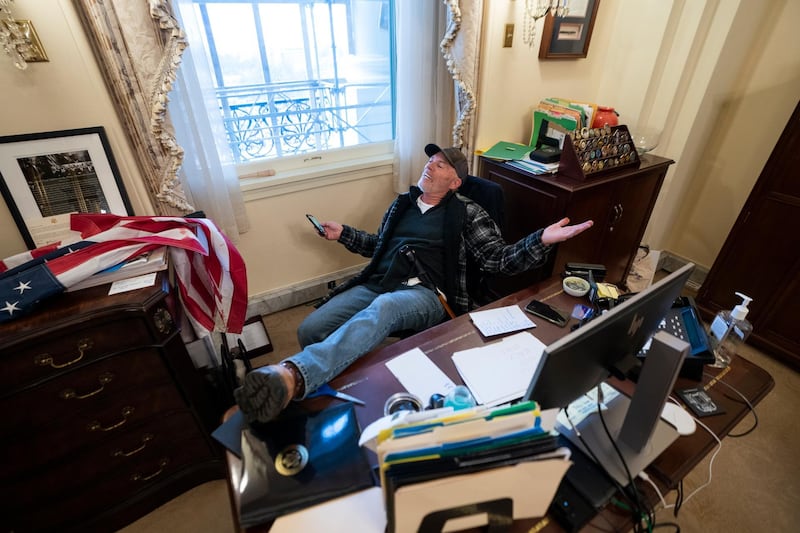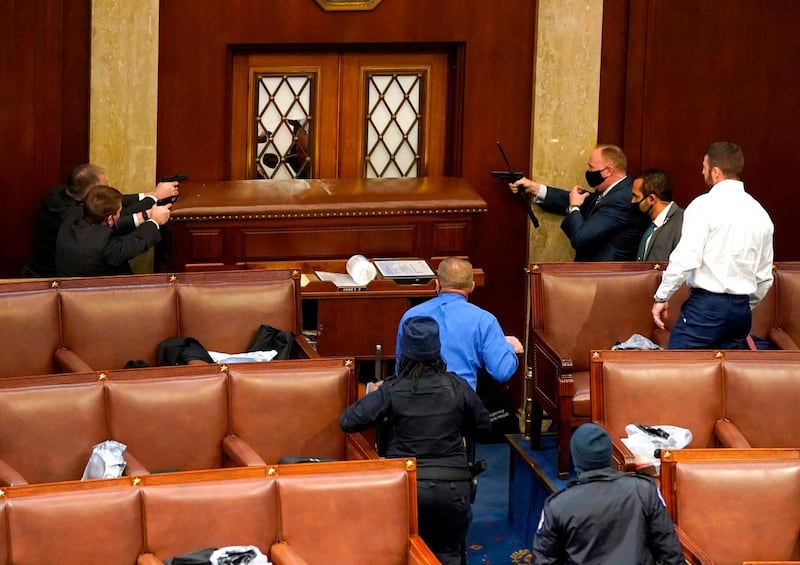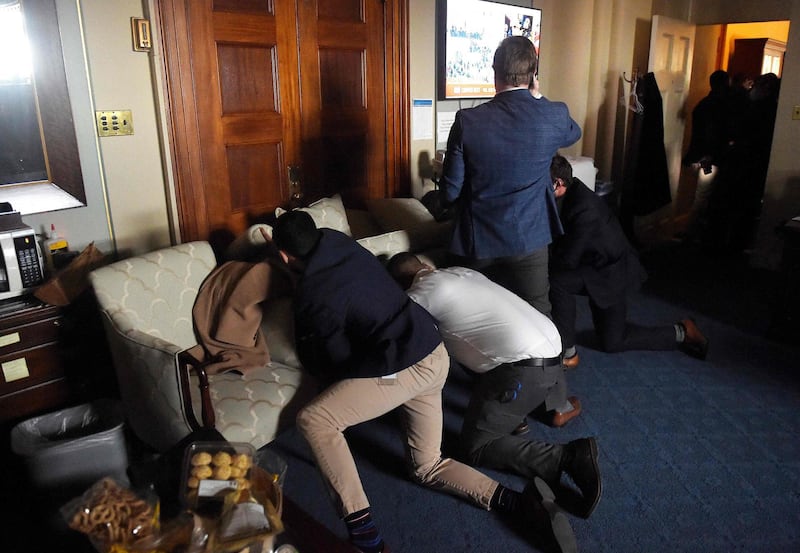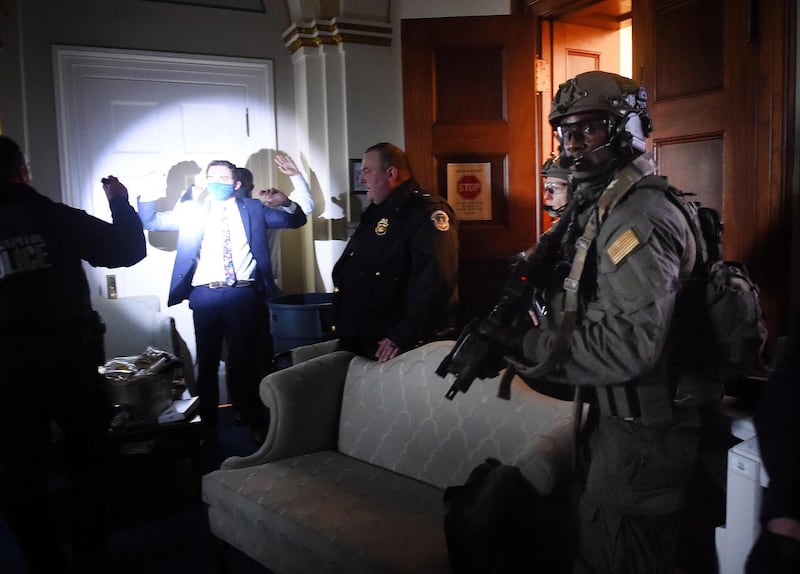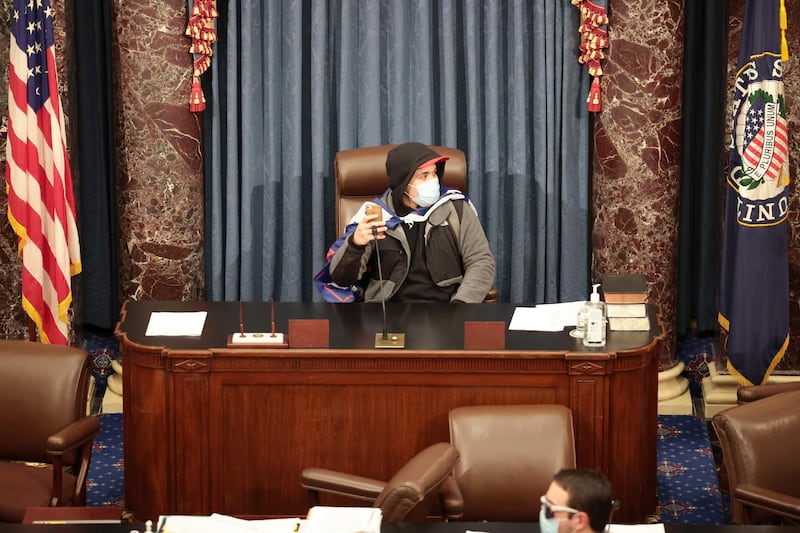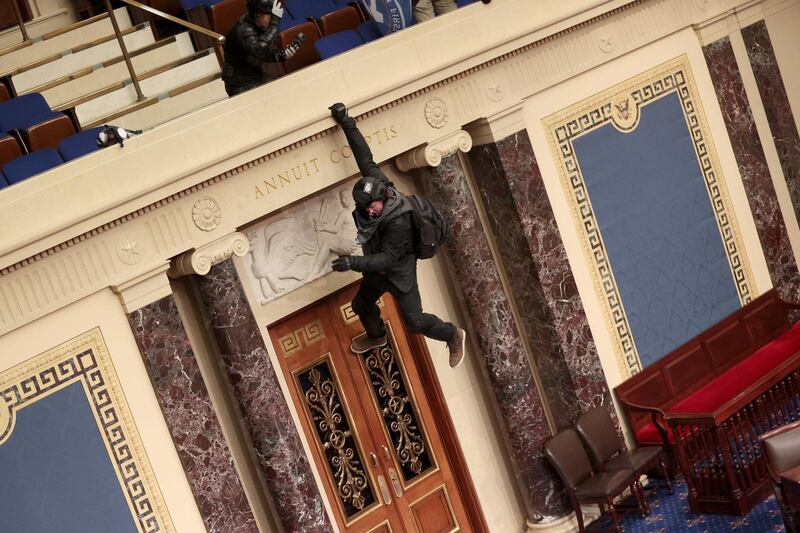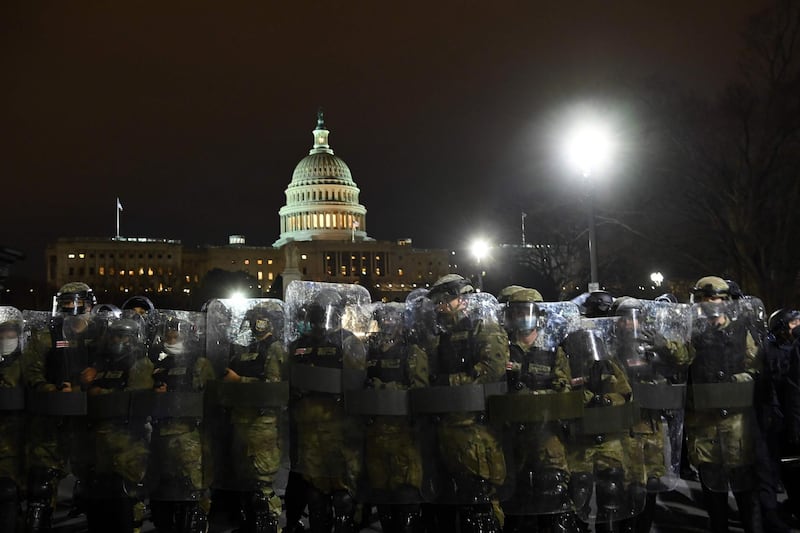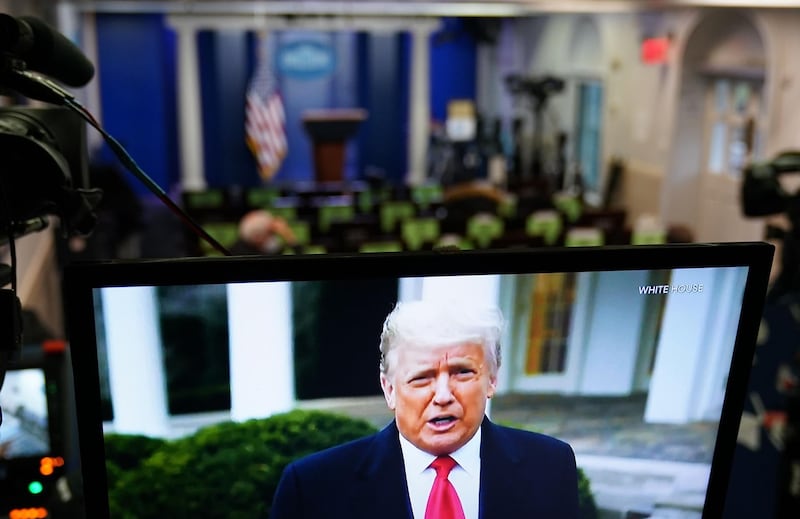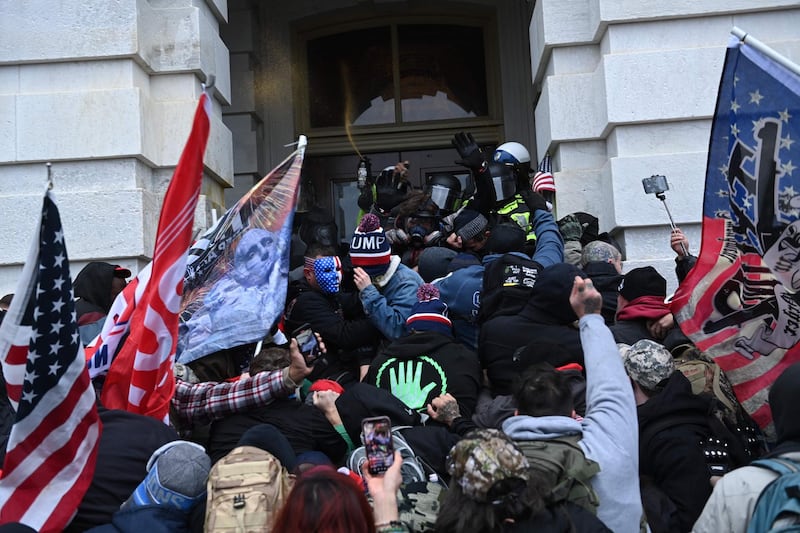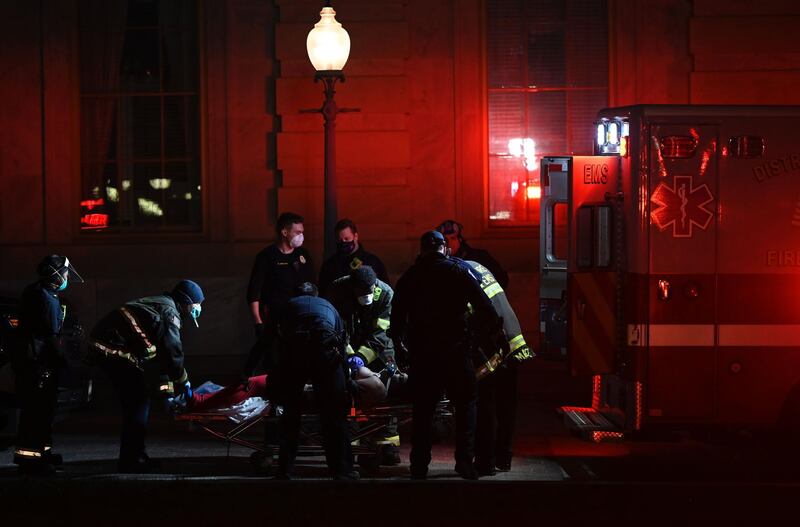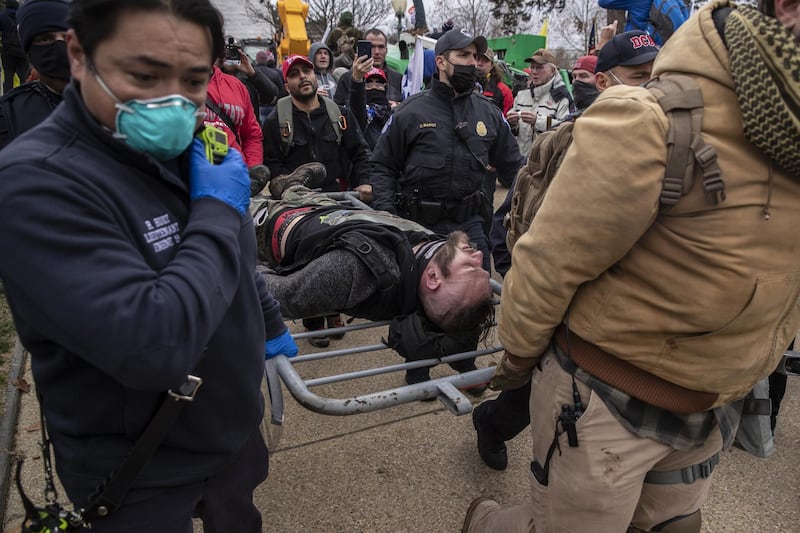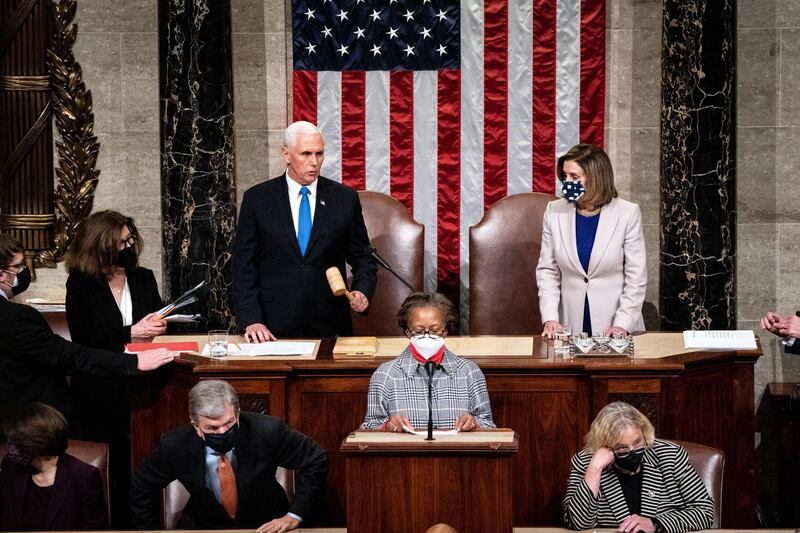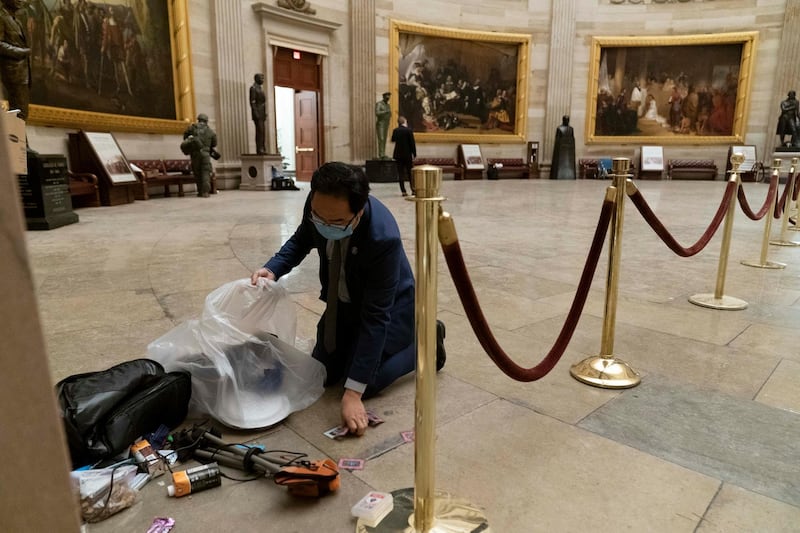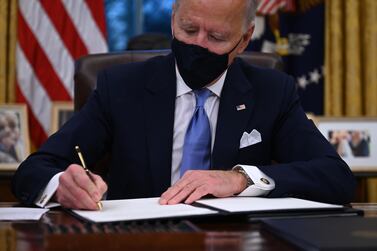The historic second impeachment trial of former US president Donald Trump is expected to begin in early February, about a year after his first impeachment trial before the Senate.
The process began with the House of Representatives impeaching Mr Trump on January 13 on charges of inciting an insurrection, related to the storming of the US Capitol by his supporters a week earlier.
The House has to deliver the articles of impeachment to the Senate, setting off the trial process in which the upper house will decide whether he should be convicted.
Mr Trump is the first president to be impeached twice and the first to be tried by the Senate after leaving office.
When will the impeachment trial start?
Chuck Schumer, Senate majority leader, announced that the trial would begin on February 8. The House is expected to transmit the articles of impeachment – the document detailing the charges – to the Senate on January 25.
Once the articles are received, members of the Senate will be sworn in as members of the “Courtof Impeachment”.
The next step will be to issue a summons to Mr Trump, who must respond to the charges by February 2, which is also the House deadline for submitting its pretrial brief.
Mr Trump is also required to submit a pretrial brief, which is due by February 8. The trial cannot begin until the House submits a rebuttal to Trump's pretrial brief.
Who will preside over the impeachment trial?
According to the US constitution, the Supreme Court's chief justice should preside over an impeachment trial of the president.
However, the constitution has left experts and scholars divided over the case of a former president.
If Chief Justice John Roberts, who presided over Mr Trump's first impeachment trial, decides not to do so this time, the trial will likely be overseen by Vice President Kamala Harris or the Senate's president pro tempore, Patrick Leahy.
How long could the trial last?
Mr Trump's previous impeachment trial took nearly three weeks, largely because of the nuances of the case brought before Congress, but there is no way of knowing exactly how long the process will take.
President Joe Biden suggested that the Senate take up the trial after completing the confirmation of his Cabinet nominees so that his administration can start work.
The House impeachment managers, the congressional members who will act as prosecutors before the Senate, have kept details of their case quiet.
Who will be prosecuting and defending?
Nine Democratic lawmakers have been named as impeachment managers, none of whom served on the team during Mr Trump's first impeachment trial. Heading the team will be Representative Jamie Raskin of Maryland, a constitutional law professor.
The other members are David Cicilline, Joaquin Castro, Diana DeGette, Madeleine Dean, Ted Lieu, Joe Neguse, Stacey Plaskett and Eric Swalwell.
Mr Trump hired Butch Bowers, a Justice Department employee under former president George W Bush, as his lawyer.
What are the consequences for Trump?
To secure a conviction, at least two thirds of the 100-member Senate – 67 senators – will have to vote in favour.
Normally, a conviction could lead to removal from office but this does not apply to Mr Trump as he has already left the White House.
The Senate could still disqualify him from holding elected federal office in the future, which would bar him from running for president in 2024, with a simple majority of 51 votes.
This measure has never been used against a president or former president.
